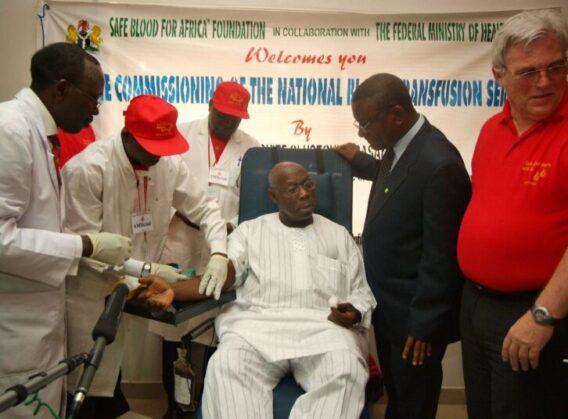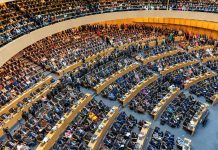Africa-Press – Mauritius. Blood donation has historically been low in sub-Saharan Africa and it’s fallen even lower during the Covid-19 pandemic. According to the World Health Organization, it’s fallen by 17% in the African region.
High-income countries make up 19% of the global population and account for 50% of the 112.5 million blood donations collected globally every year. Globally, blood donation rates vary by region.
Documented as blood donations per 1000 people, blood donation rates are: 33.1 in high-income countries, 11.7 in middle-income countries, and 4.6 in low-income countries.
Seven million blood donations are required to meet transfusion needs in the African region. Going by the current blood donation rates, only about 5.5 million donations are generated every year across Africa, leaving a shortfall of more than 1.5 million.
Four weeks ago, I donated my 16th pint of blood. I consider blood donation a lifesaver. I am comforted by the saying that: “He who saves a life, saves the whole world.
” Every time I donate blood, I visualise how the blood would save a life – someone who has dreams to achieve.
I imagine that this person survives and goes ahead to do great things in the future. The recipient of my blood may live to discover the next world-changing innovation.
The possibilities of someone who donates blood in shaping the futures of recipients are endless. I want more Africans to be blood donors like me, but I know there are barriers, including cultural ones.
These are four ways to address and overcome them so that we can achieve enough blood donations each year. Religious leaders First, use religious leaders to counter misinformation and disinformation about blood donation.
Across Africa, there are misconceptions about blood donation which links it to witchcraft. Research in Nigeria shows that “exposure of blood to witchcraft” is one of the reasons given for declining voluntary blood donation.
The research concluded that most of the reasons given were based on misconceptions, misinformation and ignorance about the effect and safety of blood donation.
National blood transfusion agencies must become proactive in using the results of such research to inform policies. Witchcraft in Africa has religious underpinnings.
Engaging with religious leaders to become advocates of blood transfusion is imperative. Incentives for blood donors Second, celebrate blood donors and provide incentives to them in order to encourage more people to donate blood.
In South Africa, focus group discussions that evaluated motivators and deterrents to blood donation among black people identified incentives as one of the motivators for blood donation.
Types of incentives identified include gift items, money, recognition, health check-up, infectious disease screening, perceived health benefits, learning one’s blood type, time off work or school, and nonspecific incentives. These incentives are easy to provide.
National Blood Transfusion agencies, government and civil society organisations should consider incentives that are relevant to a country’s context and include such when blood donation advocacy materials are developed and disseminated.
Technology Third, use technology to seamlessly link blood donors and recipients. The J Blood Match Bot developed by Angela Ochu-Baiye is an innovation that gets more blood donors into the pool.
J Blood Match is a type of artificial intelligence that connects blood donors to recipients using their blood type. It is available across Nigeria via smartphones and accessed by registering on Telegram and Facebook.
J Blood Match is not a blood bank. It links registered donors with those in need of blood at hospitals. When taken to scale, J Blood Match has the potential to increase the pool of blood donors and contribute to covering the shortfall in blood and blood products.
Convenience Fourth, make blood donation convenient for donors and potential donors. Across Africa, more people work in the informal economy and do not have time to go to blood donation sites to donate blood.
Therefore, governments, blood transfusion agencies and civil society that advocate for blood donation should include bloodmobiles as important logistics for taking services to more Africans.
The use of mobile blood donation services can increase the pool of donors for the convenience it offers. Bloodmobiles should contain mini solar blood banks, chairs for bleeding donors, television for entertainment while someone is being bled, and megaphones for community awareness and advocacy.
Bottom line Blood is life. Human blood is the only blood that can be given to humans. There are no other ways to increase blood donation except by voluntary or paid blood donors. Increasing the pool of blood donors in Africa is the responsibility of Africans. More Africans must become blood donors to save African lives.
For More News And Analysis About Mauritius Follow Africa-Press







